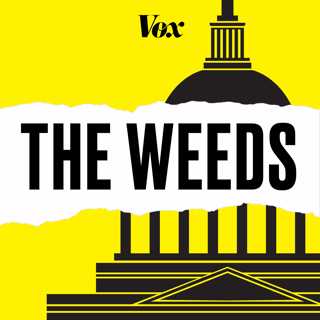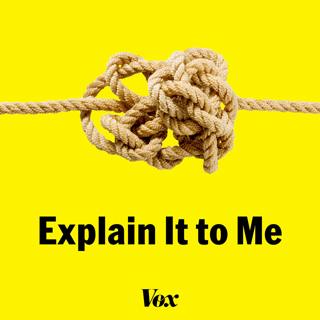
Is homelessness a crime?
America is in the midst of a homelessness crisis. With little affordable housing and limited space at shelters, many people are instead sleeping outside. But as tent encampments become more common, particularly on the West Coast where the housing crisis is most acute, the pressure on local governments to address the problem has skyrocketed. Now, the Supreme Court has decided to weigh in. The issue at the center of it is whether cities can fine or jail unhoused people for sleeping outside. Vox senior policy reporter Rachel Cohen (X, Instagram) explains the case and the stakes. Read More: Cities are asking the Supreme Court for more power to clear homeless encampments The Supreme Court will decide what cities can do about tent encampments Supreme Court Amicus Brief No. 23-175 Submit your policy questions! We want to know what you’re curious about. Credits: Jonquilyn Hill, host Sofi LaLonde, producer Cristian Ayala, engineer A.M. Hall, editorial director of talk podcasts Want to support The Weeds? Please consider making a donation to Vox: bit.ly/givepodcasts Please take a second to help us learn more about you! vox.com/podcastsurvey Learn more about your ad choices. Visit podcastchoices.com/adchoices
17 Huhti 202432min

Abortion and the erosion of privacy
Since the Dobbs decision almost two years ago, reproductive rights have been at the center of our national consciousness. Two of the latest headlines come from Florida and Arizona: a six-week abortion ban, and a total abortion ban unless the life of the pregnant person is threatened, respectively. Both states have constitutions that name-check privacy rights, but both courts found that those rights don’t extend to abortion. What does privacy look like in the United States, and do we still have it in a post-Dobbs world? Read more: Do Americans still have a right to privacy? Submit your policy questions! We want to know what you’re curious about. Credits: Jonquilyn Hill, host Sofi LaLonde, producer Patrick Boyd, engineer A.M. Hall, editorial director of talk podcasts Want to support The Weeds? Please consider making a donation to Vox: bit.ly/givepodcasts Please take a second to help us learn more about you! vox.com/podcastsurvey Learn more about your ad choices. Visit podcastchoices.com/adchoices
10 Huhti 202439min

What is “fetal personhood”?
Earlier this year, the Alabama Supreme Court ruled frozen embryos have the same rights as children. The decision sent shockwaves throughout Alabama and raised serious questions about the future of IVF in the United States. While the Alabama legislature has since passed legislation protecting IVF in the state, that doesn’t address the big question behind the court’s decision: What does personhood mean, and what does it mean for the anti-abortion movement? Read More: Fetal personhood laws, explained - Vox Alabama’s Supreme Court IVF ruling is a warning to the country - Vox Opinion | The Anti-Abortion Movement Is Gunning for Fetal Personhood - The New York Times How America’s Two Abortion Realities Are Clashing - The New York Times Submit your policy questions! We want to know what you’re curious about. Credits: Jonquilyn Hill, host Sofi LaLonde, producer Cristian Ayala, engineer A.M. Hall, editorial director of talk podcasts Want to support The Weeds? Please consider making a donation to Vox: bit.ly/givepodcasts Learn more about your ad choices. Visit podcastchoices.com/adchoices
3 Huhti 202436min

A safety net’s poverty trap
What if you weren’t allowed to have more than $2,000 at any given time? Could you make it work? For people who receive Supplemental Security Income, this isn’t a what-if — it’s reality. SSI beneficiaries are subject to strict requirements and risk losing their benefits if they have more than $2,000 in financial assets, even if they exceed that by just a dollar. Why is the limit so low, and is anything being done to fix it? That’s today on The Weeds. Read More: Tyler (@tylerlimaroope) | TikTok The Case for Updating SSI Asset Limits | Center on Budget and Policy Priorities Submit your policy questions! We want to know what you’re curious about. Credits: Jonquilyn Hill, host Sofi LaLonde, producer Cristian Ayala, engineer A.M. Hall, editorial director of talk podcasts Want to support The Weeds? Please consider making a donation to Vox: bit.ly/givepodcasts Learn more about your ad choices. Visit podcastchoices.com/adchoices
27 Maalis 202434min

Let’s fix child care together
America is in the midst of a child care crisis. The cost of child care has skyrocketed to the point where, in some states, caring for kids in pre-k is more expensive than college tuition or a home mortgage. According to economist Kathryn Anne Edwards, it’s a market failure. So how do we fix it? That’s in today’s installment of our series exploring economic fanfiction and the stories we should be covering this election year. Read More: Kathryn's plan to fix child care Submit your policy questions! We want to know what you’re curious about. Credits: Jonquilyn Hill, host Sofi LaLonde, producer Rob Byers, engineer A.M. Hall, editorial director of talk podcasts Want to support The Weeds? Please consider making a donation to Vox: bit.ly/givepodcasts Learn more about your ad choices. Visit podcastchoices.com/adchoices
20 Maalis 202443min

Bringing back the SAT
Four years after a pandemic pause, some colleges and universities are again requiring applicants to submit standardized test scores. Inside Higher Ed’s Liam Knox and the University of Delaware’s Dominique Baker explain. This episode of Today, Explained was produced by Avishay Artsy, edited by Matt Collette, fact-checked by Laura Bullard, engineered by Rob Byers, and guest-hosted by Jonquilyn Hill. It originally ran on March 8th, 2024. Transcript at vox.com/todayexplained Learn more about your ad choices. Visit podcastchoices.com/adchoices
13 Maalis 202425min

The AI election
2024 is a big year for elections, not just in the US but globally: More than 50 countries will be holding elections this year. With rampant disinformation and polarization in politics, fast-moving technologies like AI pose a unique threat to democracy. On a scale from 1–10, how worried should we be about AI and the election? Host Jonquilyn Hill talks to New York Times reporter Tiffany Hsu to find out. Learn More: The Black Box: Even AI's creators don't understand it - Unexplainable Test Yourself: Which Faces Were Made by A.I.? - New York Times In Big Election Year, A.I.’s Architects Move Against Its Misuse - New York Times Submit your policy questions! We want to know what you’re curious about. Credits: Jonquilyn Hill, host Sofi LaLonde, producer Cristian Ayala, engineer A.M. Hall, editorial director of talk podcasts Want to support The Weeds? Please consider making a donation to Vox: bit.ly/givepodcasts Learn more about your ad choices. Visit podcastchoices.com/adchoices
6 Maalis 202441min

The case for banning...millionaires?
Political philosopher Ingrid Robeyns believes that there should be a maximum amount of money and resources that one person can have. She tells Sean how much is too much and why limiting personal wealth benefits everyone, including the super rich. This episode of The Grey Area originally aired in January 2024. Host: Sean Illing (@seanilling), host, The Gray Area Guest: Ingrid Robeyns. Her book is Limitarianism: The Case Against Extreme Wealth. Enjoyed this episode? Rate The Gray Area ⭐⭐⭐⭐⭐ and leave a review on Apple Podcasts. Be the first to hear new episodes of The Gray Area by following us in your favorite podcast app. Links here: https://www.vox.com/the-gray-area Support The Gray Area by making a financial contribution to Vox! bit.ly/givepodcasts This episode was made by: Producer: Jon Ehrens Engineer: Cristian Ayala Learn more about your ad choices. Visit podcastchoices.com/adchoices
28 Helmi 202455min






















